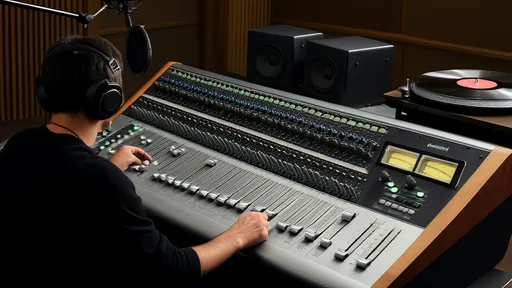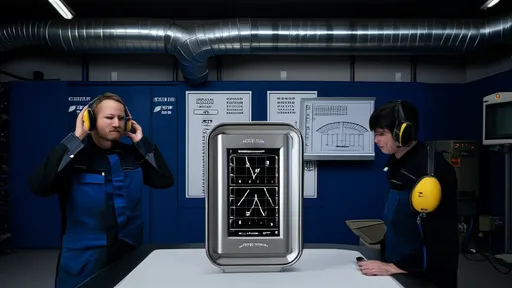In the high-stakes world of music, the art of negotiation often separates fleeting success from enduring careers. For music managers, every discussion—from record deals and publishing agreements to tour contracts and brand partnerships—demands a nuanced blend of strategy, psychology, and industry insight. Unlike transactional haggling, effective negotiation in music is about building relationships that yield value for artists over the long term. It requires a deep understanding of both creative worth and commercial realities, all while navigating the delicate balance between advocacy and compromise.
The foundation of any successful negotiation lies in meticulous preparation. Before entering any discussion, a skilled manager immerses themselves in research—understanding market rates, industry standards, and the specific priorities of the other party. They analyze comparable deals, assess the artist’s unique value proposition, and anticipate potential objections or counteroffers. This groundwork isn’t just about numbers; it’s about context. Knowing whether a label is expanding into a new genre or if a brand is seeking to connect with a particular demographic can transform leverage into opportunity. Preparation also involves clarifying the artist’s non-negotiables and aspirations, ensuring every proposed term aligns with their long-term vision.
Equally critical is the ability to listen actively. Many negotiators focus solely on articulating their demands, but the most adept managers prioritize understanding the counterpart’s motivations and constraints. By asking probing questions and observing subtle cues, they uncover underlying interests that aren’t always stated explicitly. Perhaps a promoter is concerned about ticket sales in a specific market, or a publisher is eager to secure sync opportunities for a catalog. Recognizing these unspoken needs allows a manager to craft creative solutions that address mutual goals, turning adversarial exchanges into collaborative problem-solving sessions.
Timing plays a pivotal role in negotiations. In the fast-paced music industry, momentum can shift rapidly based on chart performance, viral moments, or cultural trends. A manager must recognize when to push for closure and when to pause, allowing external factors to strengthen their position. For instance, securing a deal right after a sold-out tour or a viral streaming milestone often yields more favorable terms. Conversely, rushing into an agreement during a quiet period might mean leaving money or creative control on the table. Patience, coupled with strategic awareness, enables managers to capitalize on moments when their artist’s stock is highest.
Emotional intelligence is another indispensable tool. Negotiations can become tense, especially when stakes are high and egos are involved. A manager must remain calm, empathetic, and professional, even in the face of aggressive tactics or unreasonable demands. By managing their own emotions and responding rather than reacting, they prevent discussions from derailing into personal conflicts. This emotional steadiness also helps in reading the room—sensing when to apply pressure, when to offer concessions, and when to simply step back and let the other party reconsider their stance.
The language used during negotiations is equally important. Clear, precise communication reduces misunderstandings and builds trust. Instead of making vague promises, effective managers use specific data and examples to justify their requests. They avoid confrontational phrases and frame proposals in ways that highlight mutual benefit. For example, rather than demanding a higher advance, they might illustrate how the artist’s growing fanbase will drive ROI for the label. This approach positions the manager not as an adversary but as a partner invested in shared success.
Flexibility often separates good deals from great ones. While managers must advocate fiercely for their artists, rigidity can kill promising opportunities. Creative deal structures—such as profit-sharing models, tiered advances, or options based on performance metrics—can bridge gaps between differing expectations. Sometimes, conceding on a minor point, like contract length, can secure more critical terms, such as creative control or ownership of masters. The key is to know which battles are worth fighting and which compromises can ultimately serve the artist’s broader career trajectory.
Trust is the currency of lasting negotiations. Managers who build reputations for integrity and fairness find doors opening more readily in the industry. This means honoring commitments, maintaining confidentiality, and treating even unsuccessful negotiations with respect. Burning bridges over minor disputes can have long-term repercussions, whereas ethical conduct fosters goodwill and repeat business. In an industry built on relationships, a manager’s credibility often becomes their most powerful bargaining chip.
Finally, the best negotiations extend beyond the contract signing. A manager’s job isn’t done when the ink dries; it’s about ensuring that the terms agreed upon are executed effectively and that the relationship remains productive. Regular communication, transparency, and a proactive approach to addressing issues help transform contractual agreements into thriving partnerships. This long-term perspective ensures that today’s deal becomes the foundation for tomorrow’s opportunities.
In essence, music management negotiation is a multifaceted discipline blending analytics with humanity, strategy with intuition. It demands a relentless focus on the artist’s vision while navigating the complex ecosystems of labels, brands, and platforms. Those who master this art don’t just secure better deals—they build careers, foster innovation, and shape the soundtracks of our lives.

By /Aug 22, 2025

By /Aug 22, 2025

By /Aug 22, 2025

By /Aug 22, 2025

By /Aug 22, 2025

By /Aug 22, 2025

By /Aug 22, 2025

By /Aug 22, 2025

By /Aug 22, 2025

By /Aug 22, 2025

By /Aug 22, 2025

By /Aug 22, 2025

By /Aug 22, 2025

By /Aug 22, 2025

By /Aug 22, 2025

By /Aug 22, 2025

By /Aug 22, 2025

By /Aug 22, 2025

By /Aug 22, 2025

By /Aug 22, 2025